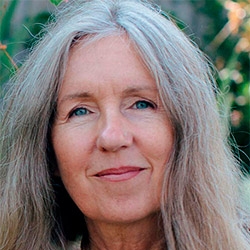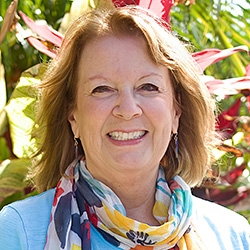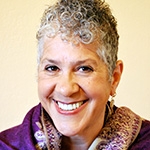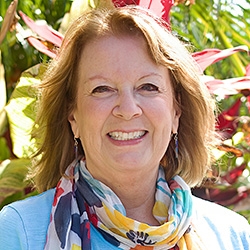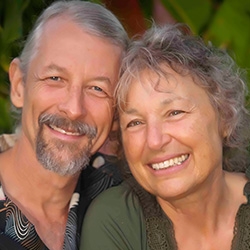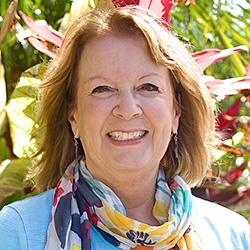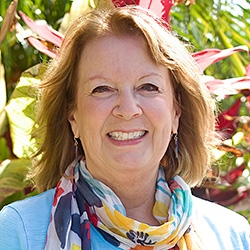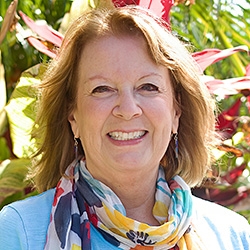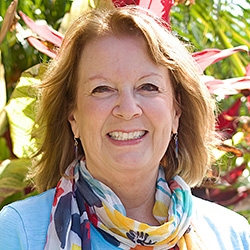
Search Results: values
-
Greetings dear readers of the Growing Roots Newsletter! Mary Mackenzie invited me to be a guest writer for this issue to which I happily agreed. She also shared that her messages are typically more personal in nature, something I always appreciate in a newsletter. The challenge for me then is to...
-
Trainer Tip: Without knowing our feelings, its harder to live fully present, take care of ourselves, and make sound decisions. If its difficult for you to know what you feel and to express your feelings, consider reviewing a list of feelings, practice expanding your feelings vocabulary, and naming your feelings.
-
Welcome to June. It’s the beginning of summer in my area of the world and I usually find myself moving at a slower pace; spending more time outdoors and with friends, more time reading and gardening. I really enjoy the beginning of summer especially because the sun brings just enough heat to feel good, but not so hot to be uncomfortable.
-
Dear friends,
Happy April Fool’s Day, which, according to Wikipedia, “is an annual custom on April 1st consisting of practical jokes and hoaxes.” I always think of my Mom on April Fool’s Day. She was mostly a stern person who scorned practical jokes, but on April Fool’s Day, she would play hoaxes on my father. One year, she...
-
-
Ask the Trainer: For many years I have been using crime and punishment (reward and consequences) to discipline because it was the only thing I knew. I knew deep in my heart it was alienating me...
-
In this vintage 1999 video, CNVC Certified Trainer, Wes Taylor leads a group of young people in a lively discussion on working with anger.
-
In our fast-paced, busy lives it is tempting to practice NVC mostly with the left hemisphere of the brain, thinking through the steps quickly without slowing down to connect more deeply with feelings and needs. Don't miss an opportunity to integrate the hemispheres of the brain and the valuable information from the neural networks in the heart and gut.
-
Working on social justice and racial equity? If you include attending to white culture and privilege as part of that work, you'll reap important benefits. Understanding white culture — along with its embedded historical privileges — provides valuable insight into a larger system of inequity.
-
For many people, attempting to connect with others across differences can feel akin to walking through a minefield. With humility, tenderness, and courage, Roxy challenges your perspectives and encourages you to open your heart and mind. Roxy uses concrete examples and visual tools to illustrate complex concepts.
-
Trainer Tip: When you suspect someone is lying, consider how it may be less important what the truth is. Instead, notice whether your need for trust is met. Without blame, nor labelling. you can make specific requests to meet your needs, while also respecting the other person’s needs. Read on for more.
-
For many people, attempting to connect with others across differences can feel akin to walking through a minefield. In this course recording Roxy explores a variety of concepts and practices that can help you navigate situations that might be confusing, challenging, or even shocking. And she'll be delving into key differentiations, such as equity and equality. This recording will offer a renewed sense of clarity around a number of theories that may help explain specifically why the areas of power, advantage, and rank tend to be so difficult to work with.
-
- Strengthen embodied awareness
- Integrate inner and outer worlds to create a connecting "corridor"
- Identify projected images that prevent connecting
- Embrace fear and transform reactivity
- Create a support network where you can express and be heard
-
How do you repair a relationship when you've already said things you regret, and want to reconnect with explaining or defending yourself? Listen as Miki Kashtan offers two valauble tips.
-
Watch this video with CNVC Certified Trainer Jim Manske to explore the practice of Self-Empathy through a different lens. Included is a unique four-step Self-Empathy process that culminates in a focus of gratitude.
-
Please join veteran CNVC Certified Trainer, Robert Gonzales, to explore how you can embody the consciousness of NVC and live every moment of every day in the fullness of compassion - for yourself and others.
-
Trainer Tip: We can improve our relationships by focusing our attention first on connection instead of other stragegies.
-
Trainer Tip: Making a request is critical because it can greatly lessen any tension in the situation. Plus, it can clarify for you and the people in your life what it would take to meet your need. Make at least one specific and doable request to someone today.
-
Trainer tip: Empathy can offer profound learning opportunities to children, expand their feelings and needs vocabulary, and teach them the positive results of valuing everyone’s needs. Read on for a story that illustrates this.
-
Trainer tip: It's often easy for us to hear rejection when someone says “no” to us. If we focus on the rejection, we may feel hurt and fail to take the time to understand what is going on with them. However, if we focus on their feelings and needs, we're more likely to uncover what they want and what prevents them. To increase success in resolving conflicts and find solutions that work for everyone, hear the “yes” behind their "no".

